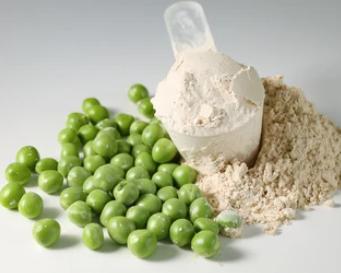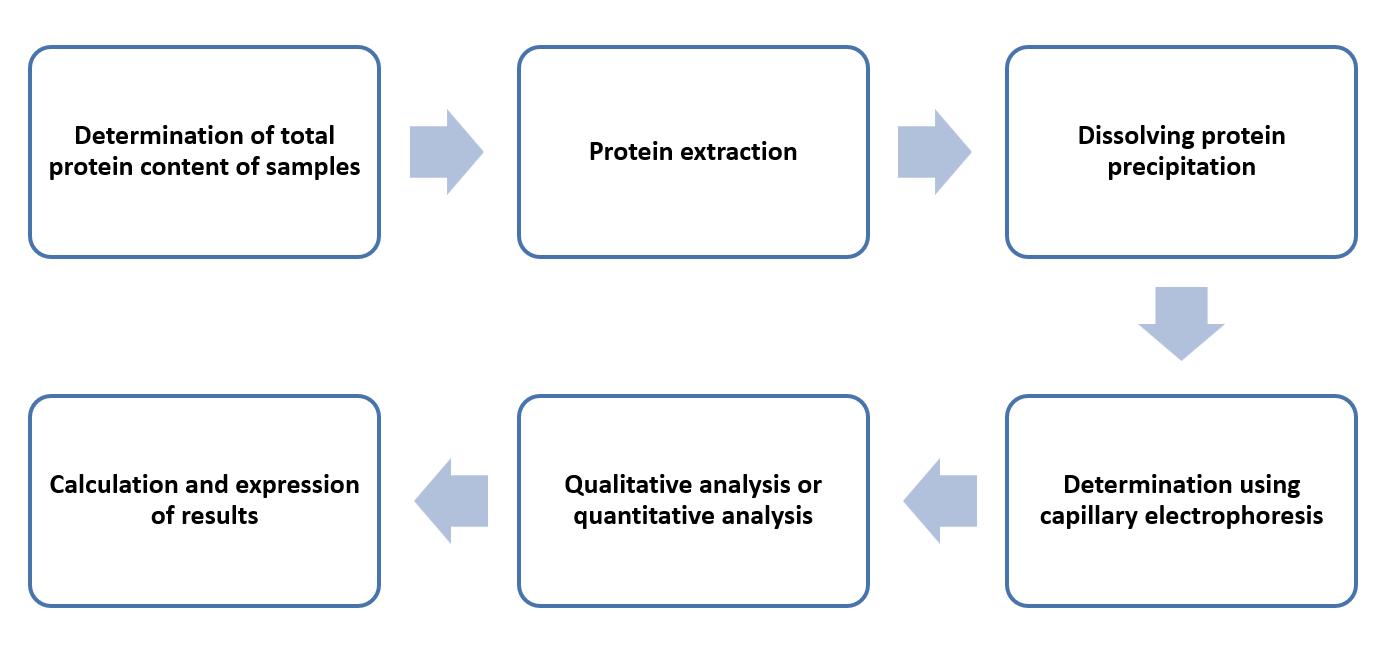Soy and pea proteins are often added to milk products. Lifeasible helps determine the soy and pea protein content of milk products to help determine whether their protein content meets food nutrition and safety requirements.
Determination of non-milk proteins in milk products is necessary. The standards for many milk products require that they contain no other protein than milk protein. However, the low price of some non-milk proteins may make them potential adulterants to mask the original low milk protein content, such as plant protein. In addition, plant proteins, especially soy and pea proteins, are potential candidates for spike milk products. Some plant proteins can cause allergic reactions. Thus, measuring these proteins can ensure the milk products have the correct protein content to meet food safety requirements. Lifeasible offers services to help determine plant proteins in milk products, including soy and pea proteins.
 Fig. 1 Pea powder (plant-based protein).
Fig. 1 Pea powder (plant-based protein).
The method is adapted to low-heat milk powder. It is based on the capillary electrophoresis screening approach. Soy and pea proteins are expressed as mass fractions of the total protein content of the samples. It should be noted that this method is not applicable to the detection of hydrolyzed plant proteins in milk powder.
The method requires the precipitate of proteins present in the test portion selectively. Then, add a sample buffer to dissolve the protein precipitate, followed by the separation and determination of the proteins by capillary electrophoresis in the presence of sodium dodecyl sulfate (SDS-CE). Lastly, quantify the amount of soy and pea proteins by the previous calibration.
Operation flow:

Main reference standard:
ISO 17129:2006
Milk adulteration is always a concern. Milk adulteration affects the nutrition and safety of milk products. Lifeasible offers services to help detect adulteration of soy and pea proteins in milk powder. We also help detect protein adulteration of plant proteins by using nano-high performance liquid chromatography-tandem mass spectroscopy (nano-HPLC-MS) combined with principal component analysis. If you have any related needs, please feel free to contact us.
References